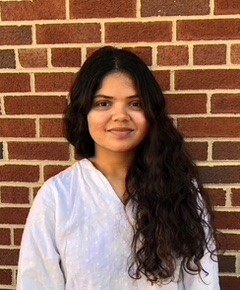Women’s Health and English Literacy Conversation Circles

By Rasmi Davu
ISSUE: In the United States, healthcare accessibility for refugees is a significant issue. Many factors contribute to this reality, though decreased health literacy plays a major role in impeding refugees from accessing healthcare services. Health literacy is a relevant issue for refugee communities as individuals often come from countries with different healthcare institutions and resources and may not be familiar with the healthcare system in their new country. Language barriers further challenge navigation and awareness of this new healthcare system. Limitations in language can make it more challenging for refugees to access and navigate healthcare, such as making health appointments, communicating with their providers, understanding health information, or navigating healthcare costs. Health equity is often more inadequate for women, especially in the lens of health literacy and language. In many refugee communities, women often assume the role of caretakers for children, older adults, and the home. As a result, women often have fewer opportunities to engage with external communities to seek out and learn about healthcare information and resources.
WHAT HAS BEEN DONE: A women’s health and English literacy program has been developed and implemented to target disparities in health literacy and equity among refugee women. The program involved a series of weekly conversation circles on Monday, Tuesday, and Thursday. Individual sessions were one-hour in length and conducted virtually on the Zoom meeting platform for ten weeks. Conversation circles focused on a range of health topics relevant to refugee and migrant women communities, including principles of healthcare navigation, oral health, nutrition, physical exercise, chronic diseases, mental health, and sexual and reproductive health.
IMPACT: Quantitative analysis of collected cohort data indicate that:
- Health literacy improved among all participants, with a total average improvement of 15%
- Comfortability in communicating in English improved by 300%
- English literacy improved among all participants, with a total average improvement of 125%
- 100% of program participants would recommend the program to others
Qualitative comments regarding the program from participants:
- “The program was great. I liked the class, but unfortunately it finished early.”
- “It was a useful class, and I learned a lot of things about health.”
- “I am flexible with Zoom, and I enjoyed taking classes over Zoom.”
FUNDING: Albert Schweitzer Fellowship (2022-2023) sponsored by Authority Health, Detroit, MI
CONTACT: sdavu@umich.edu)
Rasmi Davu, MPH, is an Albert Schweitzer Fellow for Life and student at the University of Michigan School of Medicine
